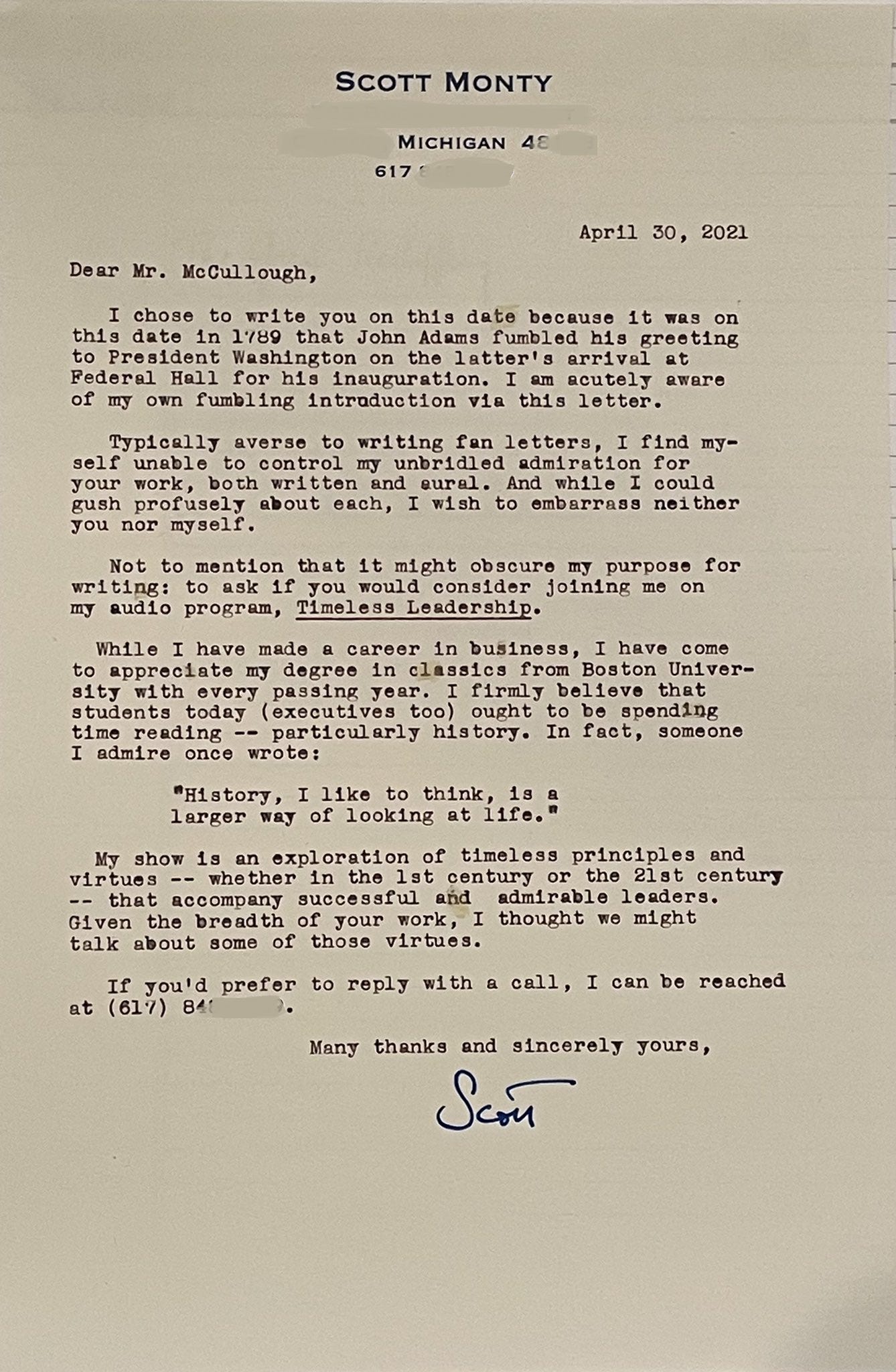A Larger Way of Looking at Leadership
A lesson from David McCullough

“Public virtue cannot exist in a Nation without private Virtue, and public Virtue is the only Foundation of Republics.”
— John Adams, 1776
Why should leaders care about history?
It’s a question I ponder frequently, as I write this eclectic newsletter.
Readers like you know that this isn’t a standard “Four Ways Leaders Can Improve Performance” publication.
The death of David McCullough caused me again to consider why I beat this drum. And the answer is twofold:
Stories and humanity.
In the 2008 documentary Painting with Words, McCullough recounted:
A friend of mine recently said, “Your books aren’t about history. They’re about life.”
And I thought, “Well, yeah, because that’s what history is. Life.”
And isn’t that what leadership is? Leadership is about working with people and helping them become the best they can be.
Dealing with the messiness of human nature, understanding others through empathy, and using stories to motivate and move people.
Leadership is inextricably linked with life. And therefore, the stories and examples we find in history help us apply those life lessons.
“History is not about dates and quotes and obscure provisos. History is about life. About change. About consequences, cause and effect. It's about the mystery of human nature. The mystery of time.
“And it isn’t just about politics and the military and social issues, which is almost always the way it's taught. It’s about music and poetry, and drama and science, and medicine and money, and love.”
— David McCullough
When your employees show up to work, they don’t turn off their personal lives. They may be concerned about a child’s performance on a test, scheduling a doctor’s appointment for an elderly parent, dealing with relationship issues. All of this affects their performance at work.
And leaders ought to be aware of that and show their employees that they care about their lives.
Ambition
In his biography John Adams, McCullough wrote about a visit Ralph Waldo Emerson made to Adams in Quincy, Massachusetts in the latter’s final year of his life in 1825.
Emerson recounted the visit and noted what Adams said to him:
“I would to God there were more ambition in the country,” by which he meant, “ambition of the laudable kind. To excel.”
We might call that conscientiousness, taking pride in your work, and a commitment to success.
Or perhaps it’s a commitment to virtue—to character.
Leaders are committed to the success of their team and know that they are judged based on their words and actions.
History will judge us.
There’s so much to learn,
One last thing…
Last year, I wrote to David McCullough to ask if he’d join me for an interview on the Timeless Leadership podcast:
His son wrote back, declining on his behalf.
“David McCullough is not well enough to respond to your letter himself but he truly enjoyed it...he very much appreciates you having included his quotation and wishes you all the very best.”






McCullough surely is a national treasure and I say that in the present tense because through his books he will live on for a long time. But it is this quote that struck me: “Public virtue cannot exist in a Nation without private Virtue, and public Virtue is the only Foundation of Republics.” — John Adams, 1776 Private virtue. When I think of all the great leaders I've known and worked for, every one of them was operating from a deeply personal sense of what is right and what is fair. I pray that more of those leaders will emerge, and quickly. We need them. Desperately.
Thank you Scott for mentioning David McCullough as we in MA were fortunate to have him reside in Hingham MA (coastal community south of Boston) and where he kept close to both both Presidents Adams and some of Abe Lincoln's family came from Hingham close to some of his roots too. He loved history and indeed it is about life and we need to learn more from it to not repeat the bad parts!